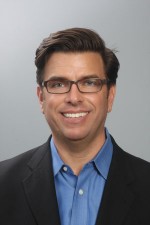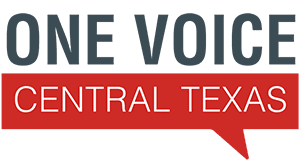
-
Name
Paul Scott -
Title
Executive Director -
Organization Name
AIDS Services of Austin (ASA) -
Number of Years as Executive Director
4
-
What does your organization do?
AIDS Services of Austin (ASA) enhances the health and well-being of the community and people affected by HIV and AIDS. For over 26 years, ASA has provided a full continuum of services to the community as the largest HIV service provider in the Central Texas area. -
How did you become interested in this work?
I initially became engaged in nonprofit work as a board member for Chattanooga C.A.R.E.S., an HIV organization in Tennessee. I was a community advocate for HIV funding and services and spoke out on behalf of HIV positive persons to the media. Living in a conservative city during the early days of the HIV epidemic, I felt compelled to step up and speak out against ignorance and stigma because I was in the position to do so. Very few people were able to publicly talk about living with HIV as they feared losing their jobs or their family, or they were just too sick. When I had the opportunity to return to work, I became a peer advocate/navigator for HIV positive clients to help them understand their healthcare options and medication regimens. I then headed an HIV Prevention program for 24 Tennessee counties. Soon thereafter, I became Executive Director of the organization. Since then, I found my heart in both the service and advocacy elements of health and human service nonprofit work. -
What drives your passion?
My passion is driven by my upbringing. My parents taught us to look out for others. We grew up lower middle class but still with advantages that many did not have. Though we would have hand-me-down clothes and very few luxuries, my parents would still find ways to help other children and people in need. They also taught me the lesson of standing up and speaking out. In our kitchen, we had a framed motto that said - "I would hate to have lived without disturbing anyone." My mother lived that motto and was an activist for children and people with disabilities. So, I grew up in a family culture of advocacy. For me personally, my passion is driven by what I have lost and what I have regained. I spent nearly five years on the edge of death, losing my job and my health but not my spirit. When I became well enough to work again, I knew my path lay in working with and for others in need. -
Do you have a mentor or a role model?
I did not really have a role model when I first started out as an Executive Director. Though I served as a board member of a nonprofit, I did not have a lot of experience as a nonprofit manager. It wasn't until I joined One Voice Central Texas that I felt that I had a great resource from peer Executive Directors. I quickly found out that many of my peers were incredible role models in how they led their organizations and advocated for their missions. I am fortunate to have received great insights and guidance from many One Voice members. I do want to give a special shout out to my friend and colleague Christine Pollei at Marathon Kids who is a great sounding board over a glass of wine. I also want to thank Dan Pruett at Meals on Wheels and More who also seems to provide a word of encouragement at the right time. -
What's the biggest challenge in your work?
My biggest challenge is restraining my intensity. I am one of those Executive Directors that wants to drive a project or initiative at a pretty good clip, and I become bored if I am not focusing on a challenging project. I have learned the importance of channeling that intensity in a way that engages and energizes team members and by also bringing them to the table for their feedback and buy-in. -
What's the best advice that you have ever received?
There are so many good pieces of advice. I can't limit it to one. Here are several that have helped me along the way to be a better leader. I am still working on most of them...daily.
- Say thank you as often as you can.
- Actively listen.
- As a leader, you have to call out the "elephant" in the room because no one else will. It is the only way to move things forward and prevent an issue from only getting more complicated. -
What are your top tips for new Executive Directors?
Listen. Engage. Be flexible. Spread your arms and bring the team along for whatever ride is next - don't expect them to keep up unless you are willing to maintain a lifeline and provide support; provide the "why" to the "what". It is frustrating sometimes to have to explain the direction you are going in and just want people to follow! However, that means your team is dragging behind you and they are not buying into the vision of where you want to go. Give the vision, state the path, allow for deviations from the path that ultimately lead to the vision and embrace the diversity of those deviations that ultimately will enhance the final product.
